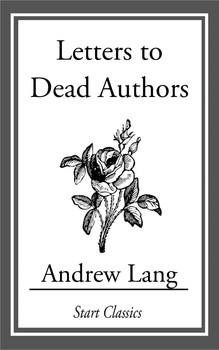LETTER–To Master Isaak Walton
byLetter to Master Isaak Walton opens with a warm tribute to the legacy of quiet joy that Walton bestowed through his writings, particularly The Compleat Angler. The author remembers a gentler time, when streams flowed clear and freely through green countryside just outside London. These waters once offered solace to weary minds and provided an equal pleasure to the seasoned sportsman and curious novice alike. Now, with cities creeping outward and smoke blackening the skies, such calm spaces grow fewer. The author laments how trout fishing, once an accessible peace, has become a luxury guarded behind locked gates and club fees. The soul of angling, meant to refresh and equalize, has been commodified in step with other pastoral freedoms that once belonged to all.
Across the border in Scotland, the spirit of angling remains more generous, as wild waters still run clean and trout dart freely in lochs and burns. The author draws a comparison to Richard Franck, a robust if controversial voice who offered a grittier account of Scotland’s wilderness, untouched by courtly restraint. Franck’s criticisms of Walton, though sharp and unfriendly, are not met with rebuttal—a silence that speaks to Walton’s disinterest in debate and his preference for harmony over discord. Where Franck fished with aggression and political fervor, Walton cast his line with patience and reverence. These two figures, so different in character, nonetheless shared a reverence for the riverbank, each expressing it through their own lens. In this contrast, the author finds not conflict but a kind of balance: passion paired with peace, critique tempered by contemplation.
The letter turns inward to reflect on Walton himself, a man shaped not just by clear waters but by life’s sorrows and the great national tumults of his time. Yet no bitterness entered his work; his prose remains as clean and nourishing as the waters he loved. What allowed Walton to endure so serenely, the author muses, was his quiet faith, his enduring affection for friendship, and his devotion to nature’s rhythm. These qualities formed a quiet fortress around him, impervious to political tides and personal losses. His heart, instead of hardening, became more open, more attuned to gentleness. This is not simply commendable—it is extraordinary, for few men navigate upheaval without cynicism, yet Walton did.
The mention of “Thealma and Clearchus,” a poem attributed to John Chalkhill and introduced by Walton, adds a note of literary curiosity. Whether or not Walton penned it, its presence in his world suggests his poetic instincts and his desire to elevate the pastoral in both thought and form. This desire—to celebrate not only fish and stream but the quiet dramas of rustic love and devotion—demonstrates a larger purpose behind Walton’s writings. He sought not only to teach anglers but to preserve a way of seeing the world, one that cherishes slowness and simple joys. That vision, the letter argues, is needed more now than ever, when pace and profit crowd out reflection and wonder. In revisiting Walton, we rediscover values that modern life tends to overlook.
As the letter draws to a close, it becomes less about the man and more about the message. What Walton offered was not just guidance on tackle or bait, but a whole philosophy, born of silence, faith, and attention. The modern angler might chase bigger fish or more exotic shores, but if he has not read Walton, he lacks the soul of the craft. The same applies to living. Walton teaches us to slow down, to listen to the world rather than hurry through it, and to be grateful for the quiet gifts that ask for nothing but appreciation. His legacy, like a well-cast line, continues to ripple through time—subtle, enduring, and never in vain.

